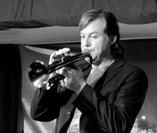|
Jolene and I were having lunch with friends the other day when the topic of air beds came up. My friend Tom asked, "what kind of bed do you guys have?" We were excited to share that we had bought a Sleep Number bed and, after a minute or two of raving, we realized we sounded like a commercial for the product. That's when the conversation morphed into a dismissal rather than a dialogue. Tom flat out said they tried the Sleep Number because they had heard so many great things, but when it arrived he realized it was an air bed and sent it back. The bed was, "a waste of money" because, "he's not spending a lot of money for air". Being sincerely interested in the psychology of is decision, I asked him if the bed was comfortable. His reply? The bed was great! He went on to say that he's an engineer and he's smart enough to not pay a lot of money on an air bed. They bought a bed with steel springs because it was a good value and I'm pretty sure he thinks we're not the brightest people in the world for choosing a better night of sleep in exchange for more money.
I hear similar arguments in conversations on Facebook groups related to making trumpet purchases. A few people rave about high end trumpets built by myself, Eclipse, Monette, Van Laar, and others. Then the majority jumps on these people quickly informing them that their positive experiences are hilarious naive folly. The dismissive nature of these interactions is what concerns me. Can we not have different perspectives and values while having a conversation? Is it no longer possible to hold a minority point of view? How do we bridge the gap between writing an idea off and having an open mind? How do we converse and find common ground in a world of text responses on a computer or phone screen? I'll come out and say right now that I personally do not care which trumpet or mattress you choose. If it makes you happy and it doesn't effect anyone else in a negative way, I'm all for choice! But that doesn't mean we can't have a conversation, right? It is in fact possible and most likely healthy to enter into dialogue and discuss our different opinions, experiences, and beliefs. If we avoid this very crucial piece of the human experience, we do ourselves a disservice that could stunt our growth as a society. Is there only one right way and all others are wrong? Or are there many various possibilities with which we can learn, experience, and grow both as individuals and as communities? My headache was blinding. I literally started losing my vision just a few seconds after playing the F above double high C. This was one of my favorite notes on this particular trumpet and mouthpiece combination and I was working hard to make this experience something my clients could reproduce on their own. How better to understand a problem than to experiment with isolated variables while playing the same arpeggio up to triple F hundreds of times? The only problem is that playing this set of notes, like many other similar riffs, causes me to have Aura migraine headaches, TIAs, and full strokes. Yes, these can be medical emergencies. Having been a trumpet designer, builder, and performer for decades, I knew that playing high notes could hurt me and even put me in the hospital as this had happened many times throughout my life. I explained this to several doctors who dismissed the idea that playing trumpet could be related to these events and told me to go home. They often noted that I was young and healthy so there could not be any correlation. Rather than listen to my experiences and problems, I was dismissed and sent on my way. But what if just one of those doctors had chosen to have a real in-depth conversation with me? What could have been discovered before I nearly lost my life multiple times? I had a recent interaction on a Facebook group with someone simply posting, "Wedge Technique, Go!" that resulted in dozens of people dismissing my response. My concern is that this technique can and does cause blood clots to travel where they otherwise may not leading to problems like heart attacks and strokes. There have been numerous medical studies that show a very strong correlation to using the valsalva maneuver (which is performed with the Wedge technique) and traveling embolisms. I was ridiculed publicly with the primary criticism being that I am not a medical doctor so I could not possess information worthy of discussion. And rather than making any attempt at having a conversation on this very important topic, several people attacked my character. This experience is not unique to me or my posts. In fact, almost anyone who posts something that goes against the mainstream thinking on any topic can expect to be dismissed, ridiculed, and ostracized to some extent. On Facebook, this often leads to being blocked and then ridiculed further once you can no longer read comments. My question to everyone reading is simply, what does this do to further our understanding of each other? Cutting off a conversation by saying someone is wrong because they lack a specific education or perspective is really not helpful to anyone. And regardless of how one caught in this type of interaction reacts, whether that be sharing experiences, citing specific medical studies, etc., it happens again and again to people from every walk of life. Let's all consider how we interact with others via social media, forums, and of course, in person. Each of us holds valuable experience and knowledge on topics outside of what others may consider mainstream. And each of us should be encouraged to share with others via healthy dialogue that bridges the distance between hard-headed beliefs and true wisdom. I'm the first to admit I have a lot to learn about most topics. I mean, I've suffered dozens of strokes and my memory loss has been substantial. I want to learn everything possible! And let us not forget that the principles of scientific discovery are deep-rooted in people, not institutions, universities, and corporations. So many are quick to dismiss the experiences and truths of an individual in favor of what I like to call Popular Science, which is often an uneducated summary of an idea rather than an understanding of the principles behind it. Remember that the vast majority of scientific breakthroughs were discovered by individuals and small teams working toward bridging the gap between questions and answers. Isaac Newton was no more a scientist than an 11-year-old today performing experiments in the backyard. He simply sought more thorough answers in a time when it was illegal to question the nature of the physical world. It is the innovative thinking people that ask the hard questions and seek the answers that often go against what is acceptable at the time that create the change necessary for a community to experience growth. Yet we are quick to believe that only those with phd's from prestigious universities are given the freedom and license to think, research, and solve problems. The more we believe this false narrative, the more reliant we are on a system designed to prevent the freedom of thought on almost any topic. The evolution of society, science, art, music, and expression is reliant on having the tough conversations often started by thinking outside the box. First, recognize the box, then recognize that it will become larger as you expand your ability to listen, converse, and bridge the gap between you and those with which you disagree. Wisdom is found in the space where boundaries and questions are on equal terms.
11 Comments
|
Jason Harrelson
Inventor, Musician, Educator and Founder of Harrelson Trumpets, Trumpet Momentum and Harrelson Momentum. Archives
July 2024
|


 RSS Feed
RSS Feed
